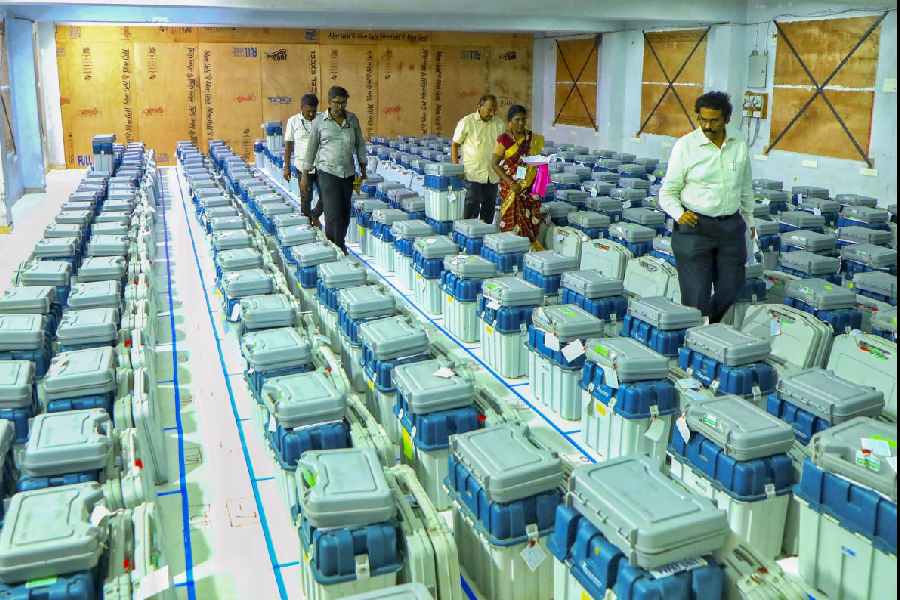Tamil Nadu: 46
Kerala: 39
Karnataka: 28
Telangana & Andhra Pradesh: 22
It’s been a long wait for results for voters from the southern states who cast their ballots early and smoothly, but have had to wait from three weeks to over a month for V-Day — when ballots would be counted in one go to determine who are the victors.
From 46 days for Tamil Nadu that voted on April 19, to 22 days for Telangana and Andhra Pradesh, that polled on May 13, it’s been one long, and boring, wait.
Never has the wait — for candidates and voters — been this long for the South that’s otherwise used to finish voting sooner than the rest of India.
In the 2019 elections, the results of which were declared on May 23, Andhra and Telangana voted on April 11, while Tamil Nadu went to the hustings on April 18, the first two phases.
But the arduous wait hasn’t all been for nothing, as political parties in the South made use of the time in different ways. Some leaders from both the BJP and Congress were redeployed in other states like Maharashtra, while AICC general secretary KC Venugopal, who contested from Alappuzha, was on an end-to-end duty due to his position in the party.
A BJP functionary in Karnataka admitted the wait was quite long for the southern states, but noted how the party assigned its leaders with the MLC elections in his state. “I agree it’s quite a long wait. But we used this period to get our leaders to work for the MLC elections for the graduates and teachers constituencies,” the leader, who declined to be named, told The Telegraph.
While the Legislative Council is the Upper House, registered voters will directly elect three graduates and teachers each in their respective constituencies in Bengaluru on June 3 — a day before the counting for the Lok Sabha polls.
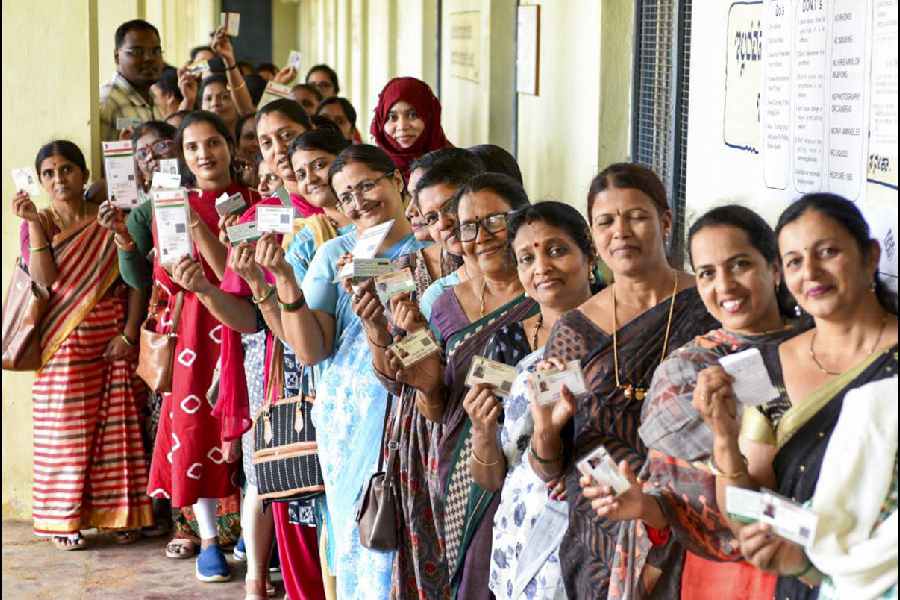
Chikkamagaluru: People wait in a queue to cast their votes at a polling booth during the Karnataka Legislative Council elections, in Chikkamagaluru, Monday, June 3, 2024 PTI
“Several of our leaders are assigned for the MLC elections,” he said, alluding to how the BJP is trying to maintain the NDA’s slender leader in the House.
Several others wracked their brains to figure out which way the 21-lakh additional women voters swung when they cast their votes on April 26 and May 7 for the 28 seats in Karnataka.
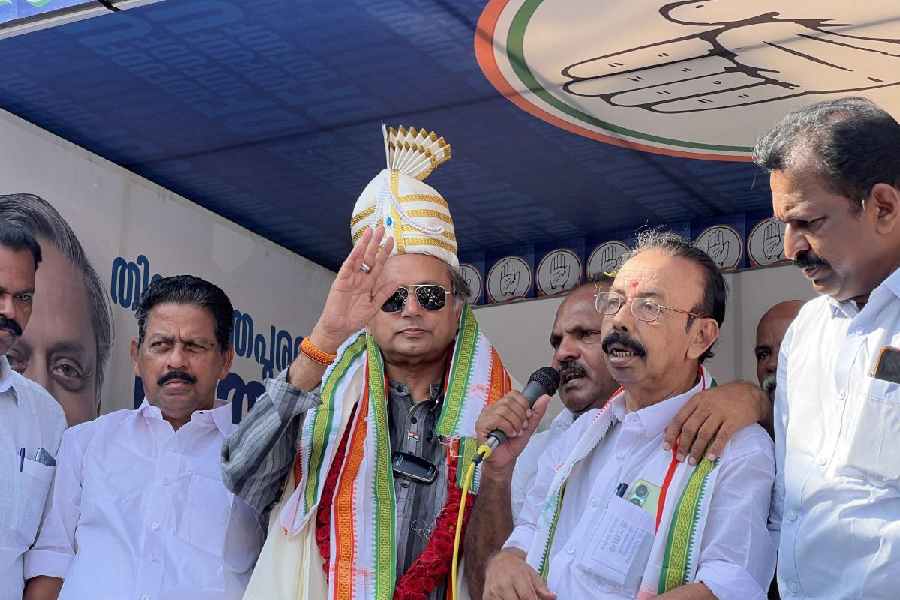
Congress's Shashi Tharoor, who sought a fourth consecutive term, on the campaign trail in Thiruvananthapuram. Kerala voted on April 26. Picture by KM Rakesh
Latest polling data suggests that around 21 lakh more women have voted this time in Karnataka across 70 Assembly segments in 22 of the 28 Lok Sabha constituencies. In comparison from five years ago, more women voted only in 22 Assembly segments covering nine Lok Sabha constituencies.
The BJP has been particularly worried about these numbers since the five guarantees implemented by the Congress government have been women-centric. Ranging from free bus rides for women, to monthly payouts of ₹2,000 for poor women heads of families, to 10kg free rice each month, the guarantees are expected to swing the women folk to the Congress.
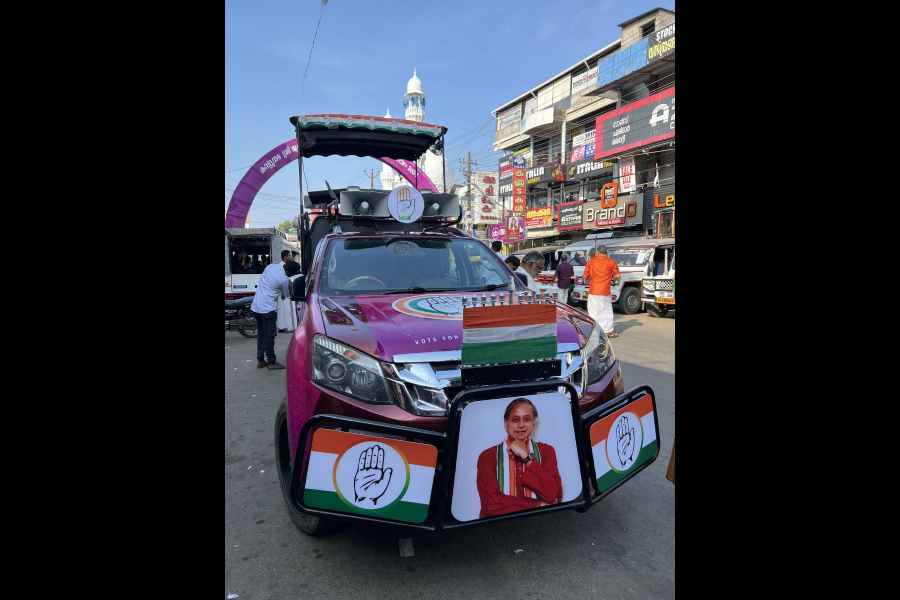
The custom-fitted van that Shashi Tharoor used to campaign in his constituency. Picture by KM Rakesh
Hyderabad-based political analyst Ande Satyam, however, feels that such a long wait for results was inevitable.
“Ours is a huge country and the world’s largest democracy. So the entire process takes time, money, energy and patience,” he told this newspaper.
But he admitted that the wait has never been so long. “There were times when we had to wait for just two or three days for the counting when almost all of the country voted together. Considering how technology has evolved and we now use EVMs, the ballots should ideally be counted sooner.
“Moving security forces is also a time-consuming process. So I don’t think we can blame anyone for this wait, although it’s too long for the South,” he added.
In Tamil Nadu, almost all parties assigned their workers to keep their eyes glued on live CCTV camera footage of the strongrooms where the EVMs are stored until June 4. But neighbouring Kerala appeared more relaxed — going about their usual work.
“We are not too worried since this is Kerala,” state secretary of Democratic Youth Federation of India (DYFI) VK Sanoj told this newspaper. They instead did something productive for the people.
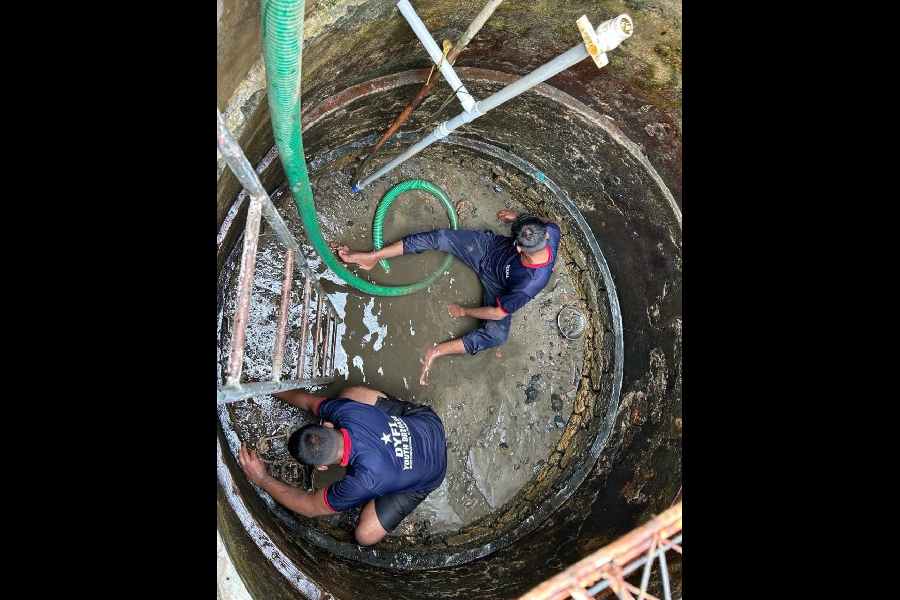
DYFI cadres clean up a school well in Kerala. They cleaned up more than 3000 government schools in the state, using the long gap between polling day (April 26) and the counting day (June 4). Telegraph picture
“We productively utilised the time between the election and counting by cleaning more than 3,000 government schools ahead of the start of the new academic year,” he said.

